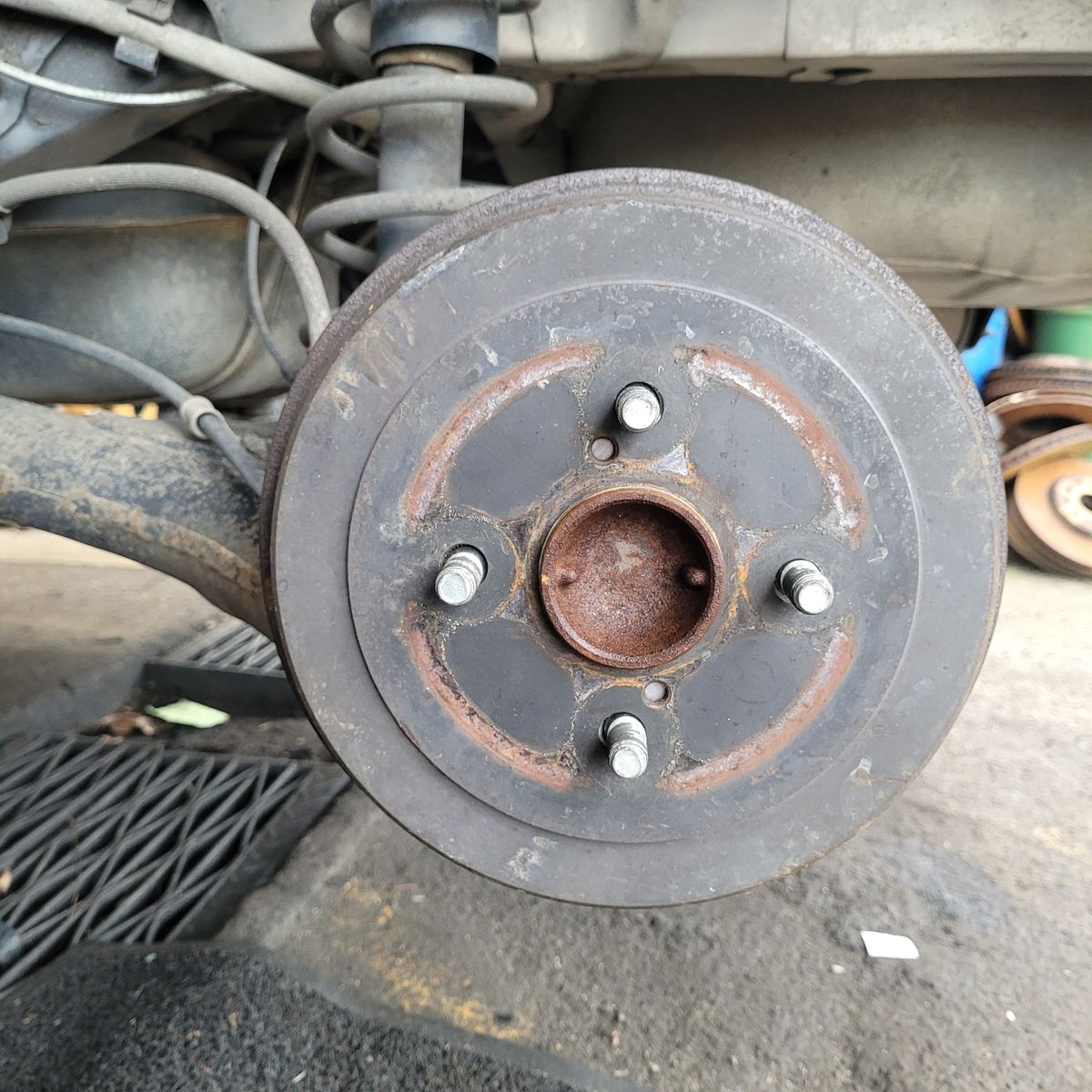What does the brake drum do?
The brake drum is a component in a vehicle’s drum brake system, which is commonly found on older vehicles and some light-duty trucks. The brake drum acts as a housing for the brake shoes, which are the friction elements that stop the vehicle when the brakes are applied.
When the brakes are applied, the brake shoes are forced against the inside of the brake drum, creating friction that slows down or stops the rotation of the wheel. The brake drum is machined to provide a smooth, consistent surface for the brake shoes to press against, ensuring reliable and consistent braking performance.
Learn more about brake drums >
Causes of brake drum damage:
Brake drums can become damaged due to a variety of reasons, including:
-
Excessive heat: Brake drums can become damaged due to excessive heat, which can cause warping, cracking, or fading. This can occur if the brakes are used excessively, or if the brake system is not properly ventilated.
-
Wear and tear: Over time, brake drums can become worn due to friction from the brake shoes, leading to damage such as scoring, grooves, or pitting.
-
Rust and corrosion: Brake drums can become rusty and corroded due to exposure to moisture and road salts, leading to damage such as surface rust and pitting.
Symptoms of damaged brake drums:
-
Reduced braking effectiveness – When a brake drum becomes worn, its ability to slow and stop the vehicle will be weakened. This can increase the risk of an accident or collision.
-
Shaking while your brake – The back of the car may shake when your brake due to the brake drum being warped or out of shape.
-
Car pulling to one side – If the brake drum is damaged unevenly, it can cause the vehicle to pull to one side when the brakes are applied.
-
Noise from brakes – You may hear a noise from your rear brakes if the brake drum is failing. Sometimes a stone or grit may get trapped between the brake drum and the brakes backing plate. This can often may a very loud scraping / squealing noise (sometime only in one direction or speed).
-
Uneven wear of brake shoes – A damaged brake drum can cause uneven or rapid wear of the brake shoes, reducing their effectiveness and leading to further brake problems.
If you experience any of these symptoms, it’s important to have your vehicle inspected by a professional mechanic. Ignoring damaged brake drums can lead to more serious and expensive brake problems and could pose a safety hazard. Regular maintenance and inspection of your brake system can help prevent these issues and maintain optimal braking performance.
How important is a brake drum replacement?
When a brake drum first becomes warped or damaged, you may not even notice. However, when the problem becomes more severe, your car’s braking ability will be compromised. We suggest that you get your brake drum replaced as soon as the problem becomes noticeable. This is because a damaged brake drum can result in your car not being able to stop correctly and can be potentially very dangerous.
Brake drum replacement in Hamilton
At Grimmer Motors, we can replace the brake drum on your vehicle. This will allow for a much smoother, safer braking experience. Our mechanics can examine your brakes for you and quickly determine if the brake drum is the source of the problem.
A brake drum replacement improves safety and keeps your braking system working as it should. For brake drum replacement in Hamilton, contact Grimmer Motors today.

